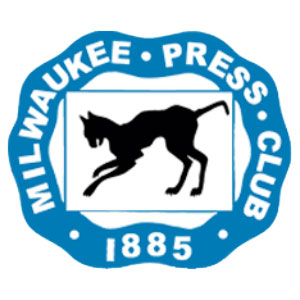Wok & Roll by Peter Kwong, (Frederic) Inter-County Leader
» Download this column as a Word document
For my birthday, my wife once treated me to tickets for “Death of a Salesman” at the St. Croix Festival Theatre. Wow, what a treat indeed.
I read the book by Arthur Miller in my college days. Yes, it was a good book, but I was not impressed much by the story then.
To be honest, I didn’t even know what a traveling salesman was. I was more intrigued by Arthur Miller’s life and that he won a Pulitzer Prize for the book, but more importantly, that he married Marilyn Monroe, the dreamboat of all dreamboats. Now, that’s some accomplishment.

Even though I have been in the hospitality industry my whole life, I have also been in the sales industry for a while. I always have consulting jobs lined up for months, one after the other.
But after Sept. 11, 2001, everything stopped. The restaurant industry just went dry. The business went down 50% overnight and all my clients would put me on hold until business picked up again. “Fine and dandy,” I told myself. But what to do to put food on the table?
I started reading the want ad section in the papers, all touting positions with great potential income with or without any working experience. Being desperate, I did apply to work as a door-to-door salesman for companies selling life insurance, door signs and finally ended up selling cars and radio ads for a Hispanic radio station.
You might not believe a word I’m saying, but that’s the story of my life — got to do what you got to do to survive. So, at one point in my life, I joined hundreds of thousands of others working in the sales market, living the life of a door-to-door salesman. Surprisingly, not knowing what I was doing, I did quite well.
St. Croix Festival Theatre is small, yet the setting is very effective. (We’re all keeping our fingers crossed, waiting for the refurbishing of the old auditorium). They make do with every inch of space to create a background that is very visual. This set could be in an apartment in any big city on the East Coast.
Willy Loman is a traveling salesman with two young sons and a lovely wife. I can relate to the life of his career now better than I ever remembered from reading the book. I could share all his emotions: the joy of making a successful deal, the disappointment of being turned down, the loneliness of traveling alone, sleeping in strange beds and eating cafe foods that all tasted the same.
To add on to that, I was always lost. There wasn’t any GPS then, so I was driving with a map on my lap. I don’t remember how I made it driving from town to town that I’d never heard of. Somehow, I managed.
Many folks think that being a salesman is despicable. “What? You’re a salesman?” Instead of being a doctor, a lawyer, a farmer, or even a pizza delivery man. Just how low can you go?
Well, my hero, Benjamin Franklin, was the greatest salesman that ever lived. He sold America to the world. He went to Europe to raise funding for fighting the British, keeping America from being colonized.
Looking at our generation, we have tons of successful salesmen, they sell dreams and visions. Also, they believe in themselves and believe in their products. How can you benefit from using their service and products?
Selling cars or refrigerators is easy; customers can see, touch and feel the products. They have a choice of colors, sizes, shapes and different models. My toughest sales job was to sell insurance.
How do you tell people that if they die, other people will benefit from it? The first thing that comes to mind is, “Sonny boy, forget it, I ain’t gonna die for a long, long time. Thank you and go away.”
Now we have to talk about emotions and selling visions. What would happen to your loved ones is the key. College education for your kids, grandkids and your spouse? How would they survive if and when you’re not around?”
Thank goodness my career of salesman ended after a few years. I liked selling and helping folks fulfill their visions. But there’s an uncertainty about the job — you never know what to expect. You enjoy the glory when times are good, but, what if … just what a lot of what ifs.
Loman was fired by his old boss’ son after many years of loyal service. He couldn’t even make enough money to pay bills, not to mention the monthly insurance premiums. His relationship with his two sons hit home. I almost felt like his conversations were conversations between my own father and me. However, we never had a heated argument like Loman and Biff, the oldest son. I dared not talk loud with my father. I wish I did and could.
We met with the cast afterward and they all autographed my program. Many fond memories would follow, I’m sure. I did ask the actors and actress how they live for the play for a few weeks just to pack up and move on with life afterward. It was Josiah Laubenstein, who played Biff Loman, who touched me when he said, “It’s like going through a mourning period. It is most difficult as you are so involved. But you just have to put them behind and move on.”
I never expected that for my birthday. What a treat indeed.



